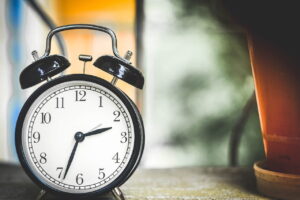
Oral Exams and “MTV Unplugged”
Oral exams are making a comeback, and I’m mostly here for it.
A few weeks ago, we had a faculty professional development day on campus. One of the sessions was devoted to faculty greatest hits, defined loosely as teaching techniques that people are proud of and were willing to share with their colleagues. The session was terrific over all, but the one I haven’t been able to stop thinking about was from a professor who decided to fight AI-enabled cheating by giving oral exams.
For context, the class in which he started using oral exams was conducted over Zoom. That made it particularly difficult to prevent students from accessing unauthorized sources during tests. When the apparent cheating hit a level he hadn’t seen before, he resorted to oral exams to force students to rely only on themselves.
He reported that the exams took about 15 minutes per student, so with a relatively small class, the logistics weren’t prohibitive. As he told it, it became clear quickly which students had mastered the material and which were just lost.
Oral exams aren’t exactly a new technology, but they have a new appeal. Readers of a certain generation may remember MTV Unplugged. It was a concert show in which performers had to use only nonelectric instruments. Stripped of synthesizers and Auto-Tune, some musicians thrived and some really struggled. (I remember my roommates and I laughing ourselves silly at Duran Duran’s effort on Unplugged. By contrast, Nirvana’s was so good that the performance came out later as an album.)
Oral exams are similar; when the student doesn’t have any of the usual crutches, you get a cleaner sense of what they actually know. Now that the illicit crutches are ubiquitous, forcing students to unplug is more useful than ever.
I’ll admit breaking into a cold sweat at the memory of my own oral exams in grad school, but those were long, high-stakes and conducted by a group. In retrospect, though, part of what made that so difficult was that I’d never had an oral exam up to that point. I hadn’t had any practice. And if I’m being honest, the professors hadn’t had much practice, either. That was a hell of a time to start.
From the administrative side, I can imagine a few potential concerns with oral exams. I’m hoping that my wise and worldly readers can help.
The first and most basic one is that most of us don’t have much experience designing oral exams. I’ve never seen a workshop on design principles for orals. (They may exist, but I’ve never seen or heard of one.) To be fair, most of us were never taught how to construct written exams, either, but at least most of us have experience there. In the absence of serious attention to ways to construct oral exams, I’d have a concern about validity.
The second is about grade appeals. If the exam is lost to history, how does a student reasonably contest a grade? I don’t mean to encourage appeals, but there needs to be some way for a student to press a case when they feel wronged. Presumably the exams could be recorded, but there, too, we’d need serious and enforced rules governing access to the recording and when it would need to be deleted.
Finally, there’s a basic issue of stage fright. A student freezing up could be clueless, or they could be paralyzed with fear. It would be a shame to fail a student who actually knows their stuff because they got nervous and went into vapor lock. Presumably this issue would fade if oral exams became a lot more common, but the first wave is likely to run into this one repeatedly. Test anxiety is bad enough for written exams; combine it with stage fright and some capable students will struggle.
Still, none of these strike me as dispositive.
Wise and worldly readers, have you found ways to ensure that oral exams are well designed? How do you handle recording? And what do you do about student stage fright? I’d love to hear at deandad (at) gmail (dot) com. Thanks!
Source link


